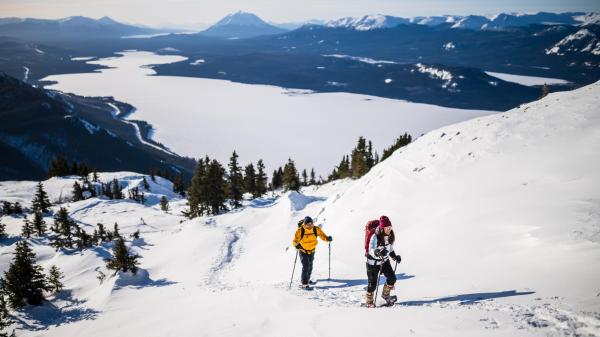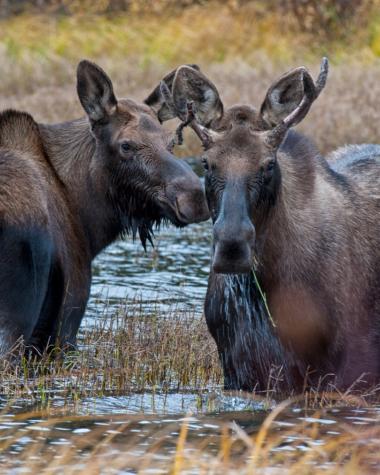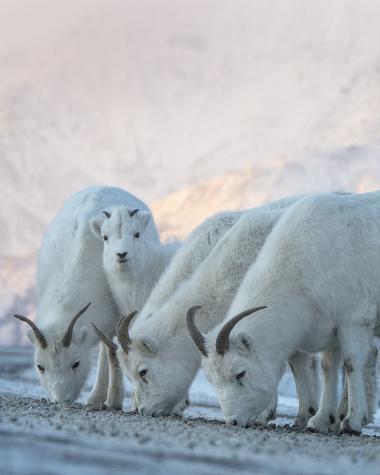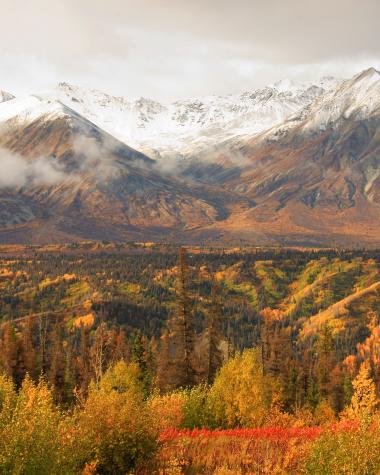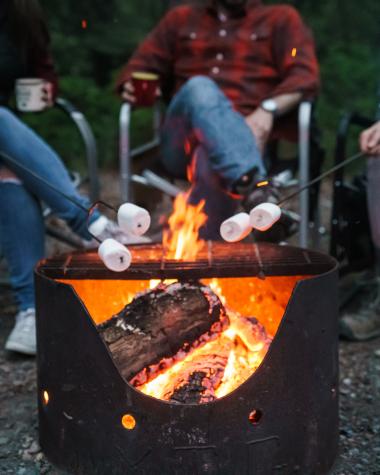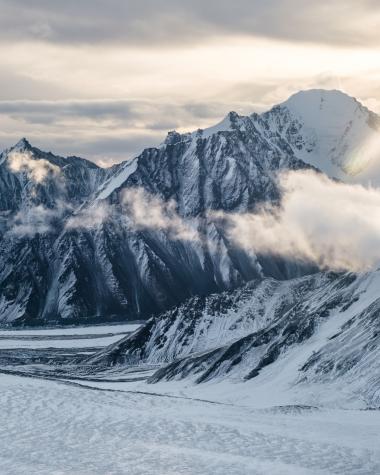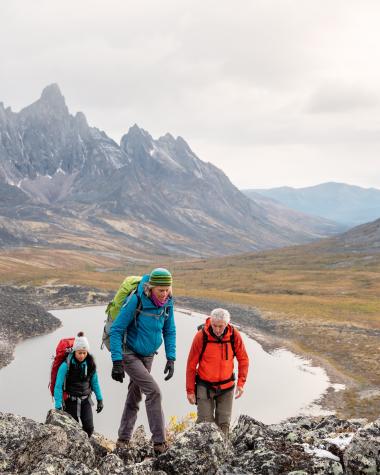
Travel tips How to stay bear-aware
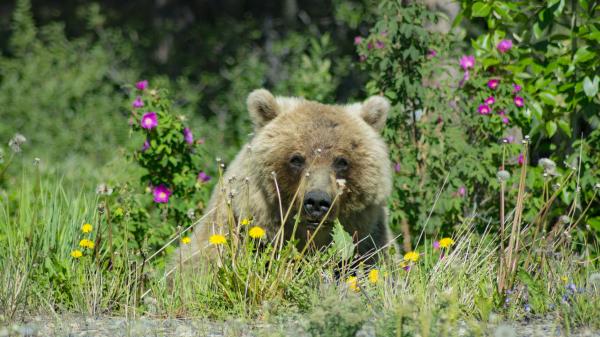
Don’t be like Goldilocks
One of the more remarkable features of our territory is the fact that we’re home to some of the world’s most unique wildlife, including our favourite honey-drunk neighbours, the bears. While they’re a huge attraction of the Yukon, it’s important to stay bear-aware on all of your adventures. Besides not eating their porridge or sleeping in their beds, there are a few safety tips to make note of when in bear country.
What kind of bears live in the Yukon?
Our territory is home to Grizzly bears, Black bears, and in the far north, majestic Polar bears. Grizzlies are brown-blonde and can weigh up to 800 pounds. Black bears are brownish-black, and can weigh up to 400 pounds. And Yogi bear is a cartoon, so he's weightless.
When are bears out ‘n’ about?
While bears usually leave their dens around April and May, you may encounter a bear in any season, including winter. Bears breed in May and June, which is when they head to meadows, rivers, and alpine areas to seek out food, do yoga in the park, and bask in the midnight sun.
Where can I see them in all of their furry glory?
We don’t recommend seeking out bears. But in the interest of staying bear-aware, you should know that Grizzlies usually stick to alpine elevations, while Black bears like to roam below the treeline. You may also spot bears on major highways, like the Alaska Highway, Haines Road, North Klondike Highway, South Klondike Highway, and the Dempster Highway.
What should I bring (besides a second pair of underwear—just in case)?
There are a few rules that you should follow when trekking through the Yukon during bear season. Here are our top tips:
- Carry bear spray and know how to use it properly.
- Travel in groups and make lots of noise.
- Practice safe roadside bear viewing if you see a bear along a Yukon roadway.
- Learn how to identify signs of bear activity.
- Know if the area you’re in is good bear habitat.
- If possible, choose trails with good visibility.
- Avoid travelling at dusk or night.
- When camping, set up your tent away from wildlife trails.
- Approach thickets from upwind so that bears can smell you (and not be surprised).
- Don't store food in your tent.
- Keep your camp clean by storing attractants in bear-proof containers or inside vehicles. Attractants are any substances bears can smell including (but not limited to): coolers, food, beverages, toiletries, pet food, garbage, recyclables, barbecues.
- Don’t feed the bears. Like, ever.
- Know what to do if you encounter a bear on the trail.
- For more tips, check out this Travel Safety Guide while planning your trip.
